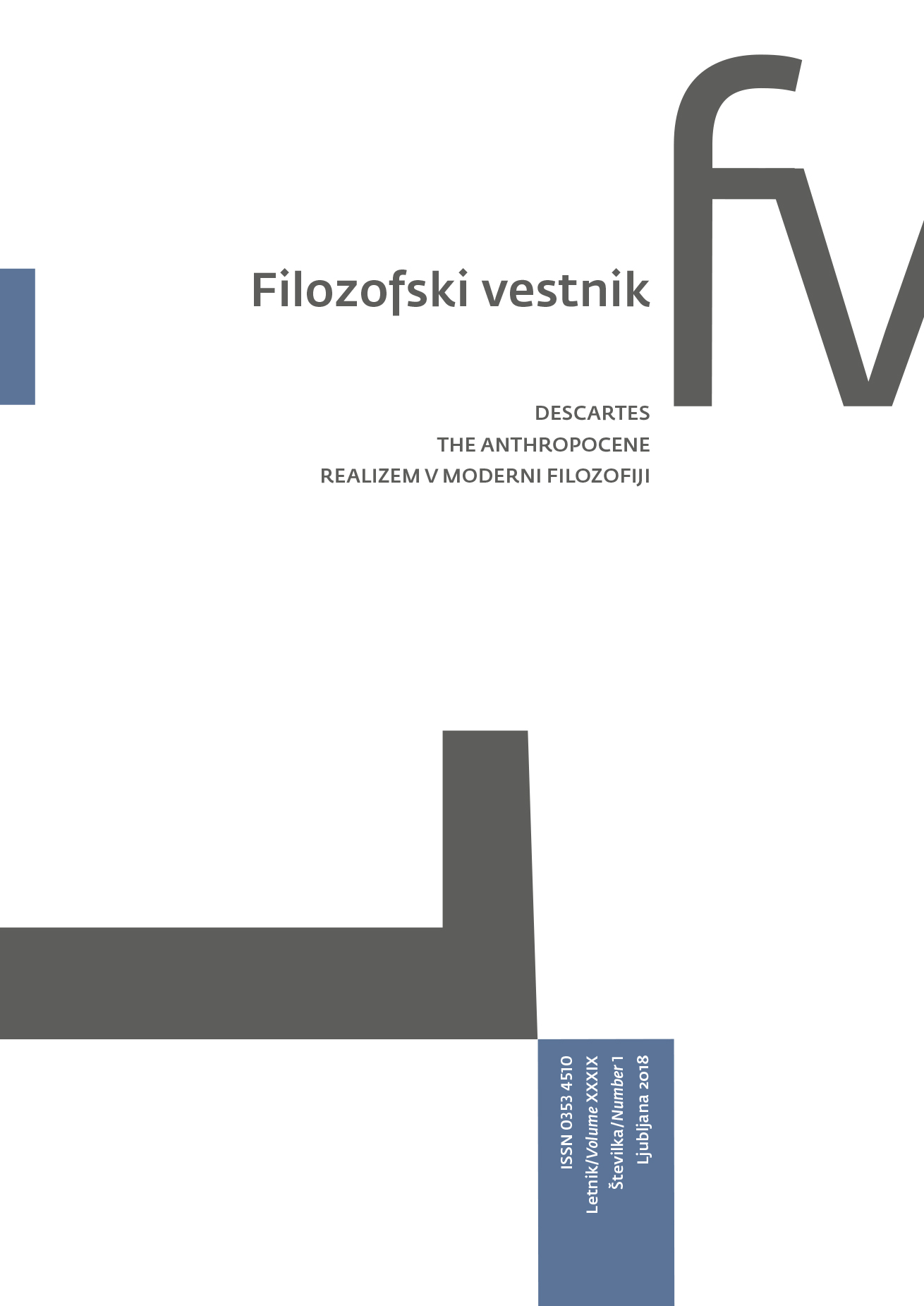Realizem Leibnizeve univerzalne karakteristike
Ključne besede:
Leibniz, realizem, platonizem, univerzalna karakteristika, epistemologija, ontologijaPovzetek
Članek obravnava Leibnizev načrt filozofskega jezika, t. i. »univerzalno karakteristiko«. Najprej izpostavimo dejstvo, da Leibnizev načrt temelji na določenem semiotičnem vidiku matematike, ki v kontekstu novoveške ideje matematizacije vseh znanosti predstavlja novost. Kakorkoli ima Leibnizev drzen načrt resne pomanjkljivosti, ki so nedvomno botrovale temu, da ni nikoli zares začel z njeno izvedbo, pa Leibniz črpa optimizem iz strogo platonistične zasnove svoje epistemologije, v kateri je karakteristika utemeljena. Karakteristika je v sami teoretski zasnovi mogoča le pod pogojem, da se zaveže klasičnemu realizmu in se odpove tisti metodi filozofije zavesti, ki sta jo ustoličila Descartes in Locke. Iz tega, kaj karakteristika obljublja, in iz njene zavezanosti platonizmu pa je videti, da se karakteristika kot jezik narave v ključnih potezah zgleduje po neki tradiciji mišljenja jezika, ki ima svoj začetek v Platonovem Kratilu in ima v Leibnizevem času še vedno svoje zagovornike.
Prenosi
Prenosi
Objavljeno
Kako citirati
Številka
Rubrike
Licenca
Avtorji jamčijo, da je delo njihova avtorska stvaritev, da v njem niso kršene avtorske pravice tretjih oseb ali kake druge pravice. V primeru zahtevkov tretjih oseb se avtorji zavezujejo, da bodo varovali interese založnika ter da bodo povrnili morebitno škodo.
Podrobneje v rubriki: Prispevki





